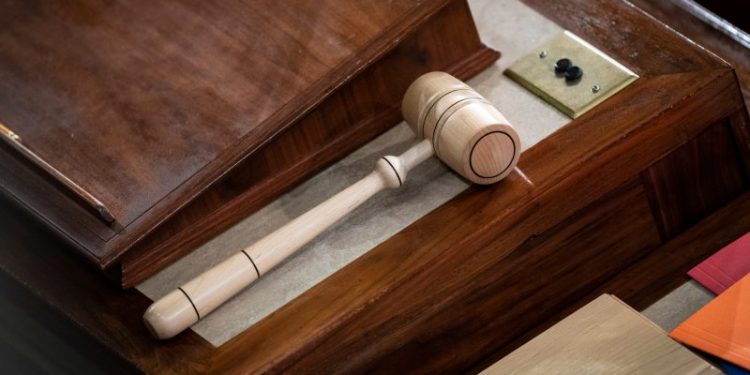Never Before Seen: Speakerless House Stalemate Mid-Session
In an unprecedented move, the American House of Representatives is currently without a speaker for the first time since 1839. With the sudden resignation of Nancy Pelosi on May 5th, 2021, the House has been without the guidance of a speaker for nearly two weeks. As the House attempts to resume operations, both Republicans and Democrats are scrambling to find a solution to the political crisis.
The speaker of the House is the highest ranking official in the United States government after the President. This person is responsible for presidings over House proceedings, keeping order, and maintaining unity among House members. With Pelosi’s departure, the position has been vacant for the first time in nearly two centuries.
One of the reasons why a speaker-less House is so rare is that it is the role of the majority party (in this case, the Democrats) to nominate and elect a speaker. The party present in the majority has traditionally elected the speaker. Since Pelosi’s resignation, however, the Democrats have been unable to agree on who to nominate and Republicans are refusing to back a Democratic candidate.
For now, the House will have to continue without a speaker until a bipartisan agreement can be made. This will be no easy feat, as both sides of the aisle must be willing to compromise either in order to select a speaker. Until then, the House will have to get used to functioning without a guiding figure at the helm.
Despite their inability to agree on a speaker, the House has come together to pass a machersul of bills with the bipartisan support of both Republicans and Democrats. While they may not have a speaker, they are still managing to get important legislation passed.
In the long run, it may be better for the House to find a favorable consensus to elect a new speaker, as without a speaker to oversee the proceedings, the House is unable to make any rules or plans for the future. While the House has gone without a speaker successfully for the past two weeks, it is best for the House to come together and find a compromise before the situation gets worse.
It is certainly a strange time for the American government, as the House has had to abandon the traditional process of electing a new speaker in order to function. Hopefully, the tug-of-war between the parties can come to a resolution soon so the House can continue its work under the guidance of a new speaker. Until then, the House will have to make-do without a guiding force at the helm.
In an unprecedented move, the American House of Representatives is currently without a speaker for the first time since 1839. With the sudden resignation of Nancy Pelosi on May 5th, 2021, the House has been without the guidance of a speaker for nearly two weeks. As the House attempts to resume operations, both Republicans and Democrats are scrambling to find a solution to the political crisis.
The speaker of the House is the highest ranking official in the United States government after the President. This person is responsible for presidings over House proceedings, keeping order, and maintaining unity among House members. With Pelosi’s departure, the position has been vacant for the first time in nearly two centuries.
One of the reasons why a speaker-less House is so rare is that it is the role of the majority party (in this case, the Democrats) to nominate and elect a speaker. The party present in the majority has traditionally elected the speaker. Since Pelosi’s resignation, however, the Democrats have been unable to agree on who to nominate and Republicans are refusing to back a Democratic candidate.
For now, the House will have to continue without a speaker until a bipartisan agreement can be made. This will be no easy feat, as both sides of the aisle must be willing to compromise either in order to select a speaker. Until then, the House will have to get used to functioning without a guiding figure at the helm.
Despite their inability to agree on a speaker, the House has come together to pass a machersul of bills with the bipartisan support of both Republicans and Democrats. While they may not have a speaker, they are still managing to get important legislation passed.
In the long run, it may be better for the House to find a favorable consensus to elect a new speaker, as without a speaker to oversee the proceedings, the House is unable to make any rules or plans for the future. While the House has gone without a speaker successfully for the past two weeks, it is best for the House to come together and find a compromise before the situation gets worse.
It is certainly a strange time for the American government, as the House has had to abandon the traditional process of electing a new speaker in order to function. Hopefully, the tug-of-war between the parties can come to a resolution soon so the House can continue its work under the guidance of a new speaker. Until then, the House will have to make-do without a guiding force at the helm.










